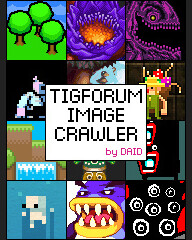Independent Games Summit: Innovation in Indie Games
By: Derek Yu
On: September 30th, 2007
What better way to spend a quiet Sunday evening then to watch a panel from this year’s Independent Games Summit, featuring Jon Blow, Jon Mak, Jenova Chen, and Kyle Gabler! This panel was one of my favorites of the summit. Each of the panelists came from a different perspective… together they really got at what was exciting about indie games for me. The four P’s, yo: passion, personality, and potential. And Pinnovation.
But yeah, I can’t believe Steve dissed me so hard at the end. Unfortunately, I don’t remember my question. I think I was going to ask Jon Mak about what hair products he uses…
EDIT: Google Video page, downloadable version (.mov)
(Source: GameSetWatch)
-
Stwelin
-
Mizumon
-
Lyx
-
Guesst
-
http://www.igf.com/ Matthew
-
Lyx
-
lesslucid
-
edenb
-
JW
-
http://www.cursesfoiled.co.uk BenH
-
Lyx
-
Observer
-
edenb
-
Lyx
-
Observer
-
Lyx
-
Observer
-
Lyx
-
Observer
-
Stwelin
-
Observer
-
Derek
-
MattC
-
http://ithamore.blogspot.com/ ithamore
-
http://www.artfulgamer.com Chris L
-
JP
-
I Like Cake
-
http://www.artfulgamer.com Chris L
-
Lyx
-
Lyx
-
Lyx
-
PHeMoX
-
PHeMoX
-
edenb
-
PHeMoX
-
I Like Cake
-
Lyx
-
Jonathan Blow
-
PHeMoX
-
MattC
-
JP
-
http://josephkingworks.blogspot.com Joseph
-
PHeMoX
-
PHeMoX
-
JP
-
Anthony Flack

